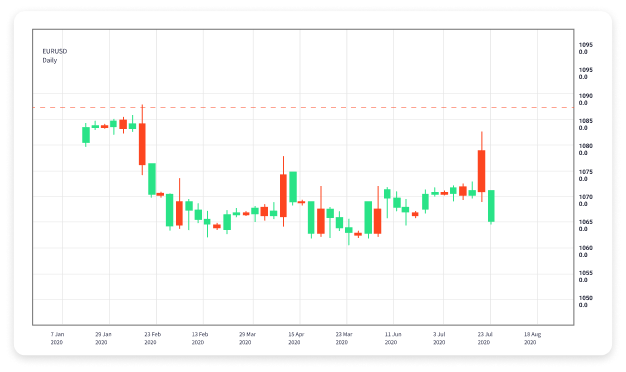November 8, 2025
Forex Trading Basics A Beginner’s Guide 1753957829

Forex Trading Basics: A Beginner’s Guide
If you’re new to the world of forex trading, it can be a daunting landscape to navigate. However, with a bit of understanding and the right resources, you can start your trading journey with confidence. This guide will provide you with an overview of the basics of forex trading, including essential concepts, various strategies, and helpful tips. To get started, you might want to explore reputable forex trading basics beginners guide Forex Brokers in Jordan to find a suitable trading platform.
What is Forex Trading?
Forex trading, or foreign exchange trading, involves the buying and selling of currencies on the foreign exchange market with the aim of making a profit. The forex market is the largest and most liquid financial market in the world, with an average daily trading volume exceeding $6 trillion. Unlike stock markets, which operate on specific exchanges, the forex market is decentralized, allowing for trading 24 hours a day, five days a week.
Understanding Currency Pairs
In forex trading, currencies are always traded in pairs, such as EUR/USD (Euro/US Dollar) or USD/JPY (US Dollar/Japanese Yen). The first currency in the pair is known as the base currency, while the second currency is the quote currency. The exchange rate indicates how much of the quote currency is needed to purchase one unit of the base currency. For example, if the EUR/USD exchange rate is 1.20, it means that 1 Euro is equivalent to 1.20 US Dollars.
Types of Forex Market Participants
The forex market consists of various participants, each with different motives and strategies. Here are the main types:
- Retail Traders: Individual traders who speculate on currency movements.
- Institutional Traders: Large financial institutions that trade significant volumes of currency.
- Central Banks: National banks that stabilize their currency or influence economic policy.
- Corporations: Companies that engage in forex trading for business transactions and hedging.
Getting Started with Forex Trading
Before diving into forex trading, there are several essential steps you should take to set yourself up for success:
1. Educate Yourself
Understanding the basic concepts of forex trading, including how the market operates, technical and fundamental analysis, and trading strategies, is crucial. Utilize online courses, read books, and follow reputable market analysts to broaden your knowledge.
2. Choose a Reliable Trading Platform

Select a forex broker that aligns with your trading style and offers the features you need. Look for regulated brokers with a good reputation. You may want to consider Forex Brokers in Jordan to facilitate your trades effectively.
3. Develop a Trading Plan
A well-defined trading plan establishes your trading goals, risk tolerance, and strategies. It should also outline your entry and exit points and money management rules. Stick to your plan to avoid making impulsive trades based on emotions.
4. Practice with a Demo Account
Many brokers offer demo accounts that allow you to trade with virtual money. This is a valuable opportunity to practice your trading strategies without risking real capital. Use this environment to test your skills and refine your techniques.
5. Start Trading with Real Money
Once you feel comfortable with your trading strategies and have a well-defined plan, you can begin trading with real money. Start with a small investment that you can afford to lose and gradually increase your trading size as you gain experience and confidence.
Key Strategies for Forex Trading
There are several trading strategies used in forex trading. Here are a few popular ones:
1. Scalping
Scalping is a short-term trading strategy where traders look to make small profits from numerous trades throughout the day. Scalpers often hold positions for only a few minutes or seconds and rely on market volatility.
2. Day Trading
This strategy involves buying and selling currencies within the same trading day. Day traders close all their positions before the market closes to avoid overnight risks and aim to capitalize on short-term price movements.
3. Swing Trading

Swing traders hold positions for several days or weeks to take advantage of expected price movements. This strategy requires a medium-term approach and involves both technical and fundamental analysis.
4. Position Trading
Position trading is a long-term strategy where traders hold onto their positions for weeks, months, or even years. This approach relies on fundamental analysis and long-term trends rather than short-term price fluctuations.
Risk Management in Forex Trading
Effective risk management is vital in forex trading, as it can significantly impact your profitability. Here are some essential risk management practices:
1. Use Stop-Loss Orders
Stop-loss orders automatically close your position at a predetermined price to limit your losses. Setting stop-loss levels is crucial, especially in a volatile market where prices can change rapidly.
2. Avoid Overleveraging
Leverage allows you to control larger positions than your initial investment. While it can amplify your profits, it can also lead to significant losses. Use leverage wisely and avoid risking more than you can afford to lose.
3. Diversify Your Portfolio
Don’t put all your capital into a single trade or currency pair. Diversifying your portfolio can help spread risk and protect your capital from adverse market movements.
Conclusion
Forex trading can be an exciting and potentially lucrative endeavor. However, it’s essential to approach it with a solid understanding of the basics, a well-defined trading plan, and effective risk management strategies. By educating yourself, practicing with a demo account, and learning from your experiences, you can build the skills needed to navigate the forex market successfully. Remember that, like any investment, forex trading carries risks, and it’s critical to trade responsibly.
Additional Resources
If you’re interested in learning more about forex trading, consider exploring online forums, webinars, and publications dedicated to forex analysis and trading strategies. Many successful traders share their insights and experiences, which can be invaluable in your trading journey.
